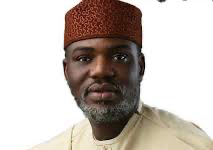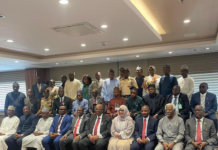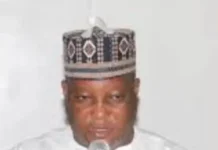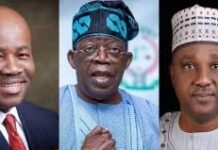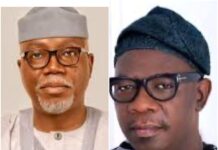Three Troublesome SDGs affecting Nigeria’s Development By Bello Shehu Maude
Between 25 – 27 September 2015 Heads of States and Governments met at the General Assembly to celebrate the UN’s Seventieth Anniversary in New York City. Part of the commitment of the UN celebration was agreeing to set up historic successor goals to the Millennium Development Goals (MDGs) known as Sustainable Development Goals (SDGs) with the slogan of “Leave No One Behind”.
The SDGs differ from the MDGs, though it is considered to be the replica and continuation of setting development goals for the interest of the globe in general. SDGs stand to be more ambitious with 17 goals and 169 targets, developed through better consultative, transparent and participatory processes and commits all countries of the world. While the MDGs in comparison had a limited 8 goals and 18 targets respectively, less consultative, transparent and participatory, and are only applicable to developing countries.
The 17 Goals of the SDGs include the eradication of poverty, end of hunger, good health and well-being, quality education, gender equality, clean water and sanitation, affordable and clean energy, decent work and economic growth, industry, innovation and infrastructure, reduced inequalities, sustainable cities and communities, responsible consumption and production, climate action, life below water, life on land, peace, justice and strong institutions and partnerships for the goals. These ambitious and all-encompassing goals are to be met by the year 2030.
Nigeria is part and parcel of the promising Nation-State to attain the SDGs by 2030, though the country failed woefully to achieve the predecessor goals known as MDGs due to a poor leadership system, insecurity, and corruption despite the commitments of the global leaders, international organisations and a lot of donour agencies to the development of the country.
I will give priority and proper concentration to three (3) goals out of 17 in relation to Nigeria which are: Eradication of Poverty, Zero Hunger, and Quality Education for the interest of the less privileged to know whether the world set an agenda for their purpose or the country’s representatives in the international system.
Many propagandas have been set aside to convince the world that the country is doing its best in tackling the above menace and making proper arrangements for the well-being of the populous black nation on earth.
Looking at Goal No. 1 which attempted to eradicate extreme poverty everywhere in all its ramification around the globe, Nigeria, as a country is left behind as currently a greater part of the citizens, are living on less than $1.25 a day as against the wishes of the agenda. According to a recent report by the National Bureau of Statistics revealed that 133 million Nigerians are multidimensionally poor due to a lack of access to health, education, living standards, employment and security.
Also, World Bank reported that Four (4) out of ten (10) Nigerians live below the poverty line.
Read Also:
Along the line, President Buhari reassures his commitment by inaugurating a National Steering Committee to lift One Hundred Million (100,000,000) Nigerians out of poverty under the Chairmanship of Vice President Professor Yemi Osibanjo.
While taking into consideration that a poor man cannot be able to feed himself three square meals a day, we can develop the interest of arguing whoever falls under the poverty line is battling with hunger at the detriment of his life to survive with less than what the elite of the country is sharing out of his national cake. If we are interested and know much about humanity, we cannot allow anyone to be struggling with bare food to eat while a lot of children are begging for their daily survival.
The Federal Government of Nigeria has claimed that on monthly basis, it spends about Twelve Billion Naira (N12billion) under National Home-Grown School Feeding Programmes led by the Ministry of Humanitarian Affairs, Disaster and Social Development. According to Global Hunger Index, Nigeria in 2022 ranked 103rd out of 121 countries in the world with a score sheet of 27.3.
Education has been widely recognized not only as a fundamental human right but also as a catalyst for sustainable development and a vehicle for confronting the challenges facing societies in terms of socio-economic, environmental and ecological realities, considerable attention is shifting towards it. As a corollary, Sustainable Development Goal 4 have equally been identified as constituting a force contributing to social and economic development. As a member of the United Nations, Nigeria is committed to achieving not only the human rights enshrined in the Universal Declaration of Human Rights of 1948 but also the Global Goals, especially SDG 4 on equitable quality education. Sadly enough, Nigeria recorded about 20 million out-of-school children as reported by United Nations Educational, Scientific and Cultural Organisation (UNESCO), the statistics revealed that India along with Nigeria and Pakistan have the highest figures (244million) for out-of-school children globally
In Conclusion, all the three interwoven SDGs are giving less priority in Nigeria whereby the problem escalates to make the country insecure with the attacks by extremist in the Northern part of the country and subsequently paved a way for banditry to set aside their tent and temper with the freedom of movement of Nigerian citizens by fear of being kidnapped for ransom in Northwestern part of the country.
There should true commitment by government agencies/persons saddled with the responsibility of ending poverty, zero hunger and provision of quality education in the country such as the Office of the Senior Special Assistant to the President on SDGs and the National Assemblies Committees both the upper and lower chambers, among others to work vis a vis to see the reality of attaining the entire 17 Sustainable Development Goals.
Bello Shehu Maude is a Developmental Journalist, Public Policy Analyst, Certified Peace Ambassador, Advocate of Good Governance and Youth Inclusiveness in Politics. [email protected]








